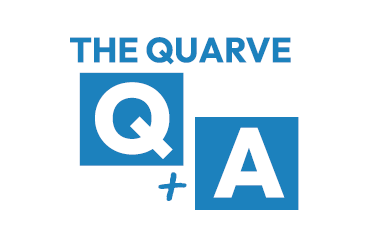
The Quarve Q&A
Q: Why has metal roofing increased in popularity?
A: With the cost of labor and materials on the rise and an increasing number of hailstorm claims to insurance providers, it’s no surprise metal roofing increased from 5% to 17% of all residential roofs installed over the past five years nationwide.
Q: How much does a metal roof cost?
A: Costs to upgrade to a metal roof can vary greatly depending on the quality of the material and the complexity of the installation. On average, a metal roof will cost between 2.5 and 3 times the cost of a typical asphalt roofing replacement. An asphalt roof can be installed in 1 to 2 days, while a metal roof would take 4 to 6 days for the same home.
Q: Will I get a return on my investment?
A: Homeowners who’ve switched to metal roofing will enjoy both a savings on energy costs and an increase in the value of their home. According to the Cost vs. Value 2020 Report, metal roof replacement has a 61% average ROI nationwide. And with the ever-rising cost of materials and labor, not having to replace your roof every 20 to 25 years is sure to pay off in the long run.
Q: Is it noisy?
A: For most homeowners with an attic space between the roof deck and the ceiling inside the home, there is little difference in noise levels compared to a traditional roof. For homes with vaulted ceiling areas, a metal roof makes a different sound and can be louder at times. However, most homeowners enjoy the metal sound from an occasional rain.
Of the hundreds of roofs we’ve installed, we have not received calls regarding the noise level difference.
Q: Can metal roofs be installed over asphalt shingles?
A: In many cases, by leaving the existing asphalt roof in place, homeowners can enjoy the added benefits of increased insulating value and noise reduction.
Q: How do metal roofs perform in extreme weather conditions?
A: Most metal roofs are Class IV impact rated, meaning a much higher resistance to hail and wind damage. Plus, many metal roof options like metal shingles feature a small air pocket, which adds insulating value and reduces the potential for ice dams forming. Overall, metal roofing is the best material for weathering extreme conditions.
Q: Are there homes that aren’t good candidates for metal roofing?
A: Because a metal roof is a slicker surface, homeowners will see snow and ice shedding off their roof following snowfall. In some cases, a metal roof may accumulate several inches of snow before shedding, leading to a large mass sliding down at one time.
This can be reduced or prevented by installing snow retention cubes or bars on the roof in high-traffic areas, keeping humans, vehicles, and landscaping safe. But if your home has large areas with decking or flat roofs, you may not be a good candidate to upgrade to metal roofing.
Q: Is there a risk of lightning strikes?
A: No, metal roofing does not increase your chance of being hit by lightning. And, even if your home was hit, your metal roof would disperse the energy, decreasing the likelihood of damage or fire.
Q: How do I choose the right contractor for my metal roof project?
A: With metal roofing exploding in popularity, many contractors are jumping on the bandwagon, offering installation of metal roofing with little to no experience to do so. In order to find a contractor that will get the job done right the first time, consider and meet with contractors, make sure to ask these important questions:
- How many years have you been in operation? How many years have you been installing metal roofing? How many metal roofs have you installed?
- What certifications or training have your metal roofing crews received?
- Are you able to send me a list or a map of homes where you’ve installed a metal roof?
- Are you licensed, insured, and in good standing with the Minnesota or Wisconsin Department of Labor?
- Are you able to show me reviews from homeowners or provide references?
And, at the end of the day, if you decide metal roofing isn’t the right choice for your home, we offer a variety of other quality roofing products to choose from.
Call 763-785-1472 or fill out the lead form information on this page to schedule a FREE in-home consultation and get your dream project started!
Get Started
Here are some of our most commonly asked questions: The Quarve Q&A Q: Why has metal roofing increased in popularity? A: With the cost of labor and materials on the rise and an increasing number of hailstorm claims to insurance providers, it’s no surprise metal roofing increased from 5% to 17% of all residential roofs installed over the past five years nationwide. Q: How much does a metal roof cost? A: Costs to upgrade to a metal roof can vary greatly depending on the quality of the material and the complexity of the installation. On average, a metal roof will cost between 2.5 and 3 times the cost of a typical asphalt roofing replacement. An asphalt roof can be installed in 1 to 2 days, while a metal roof would take 4 to 6 days for the same home.

